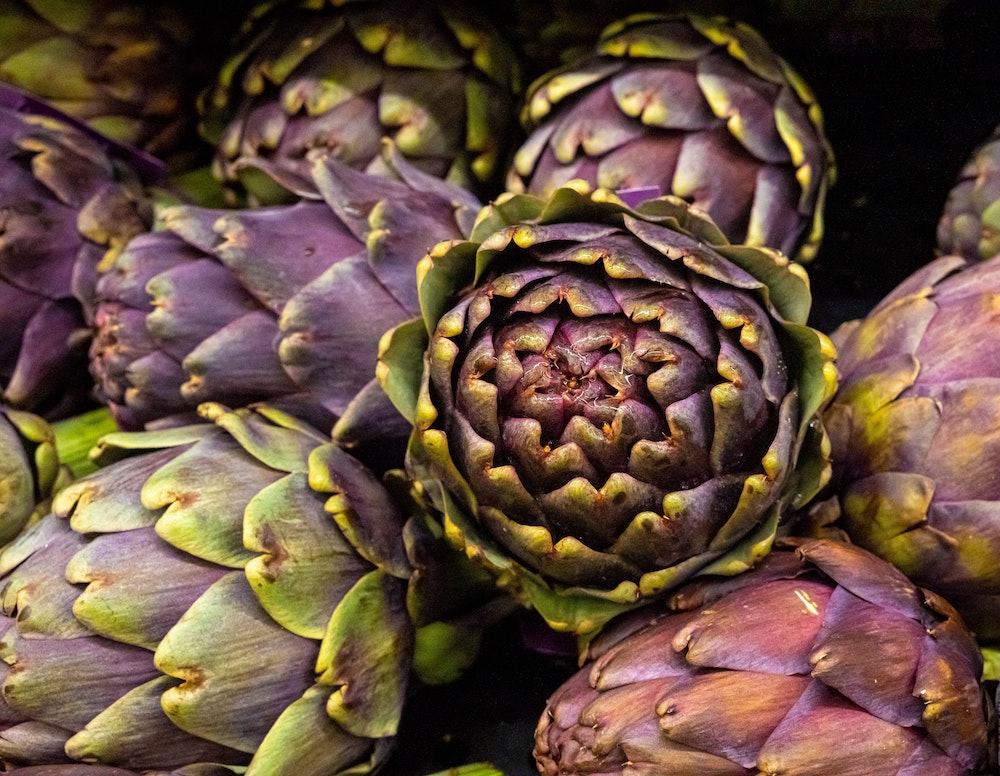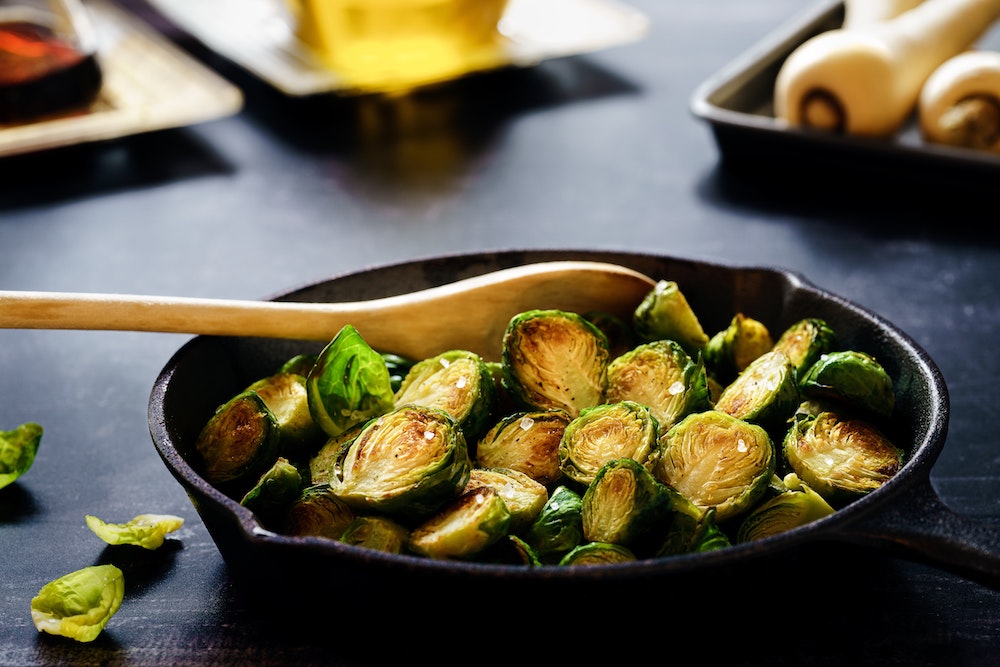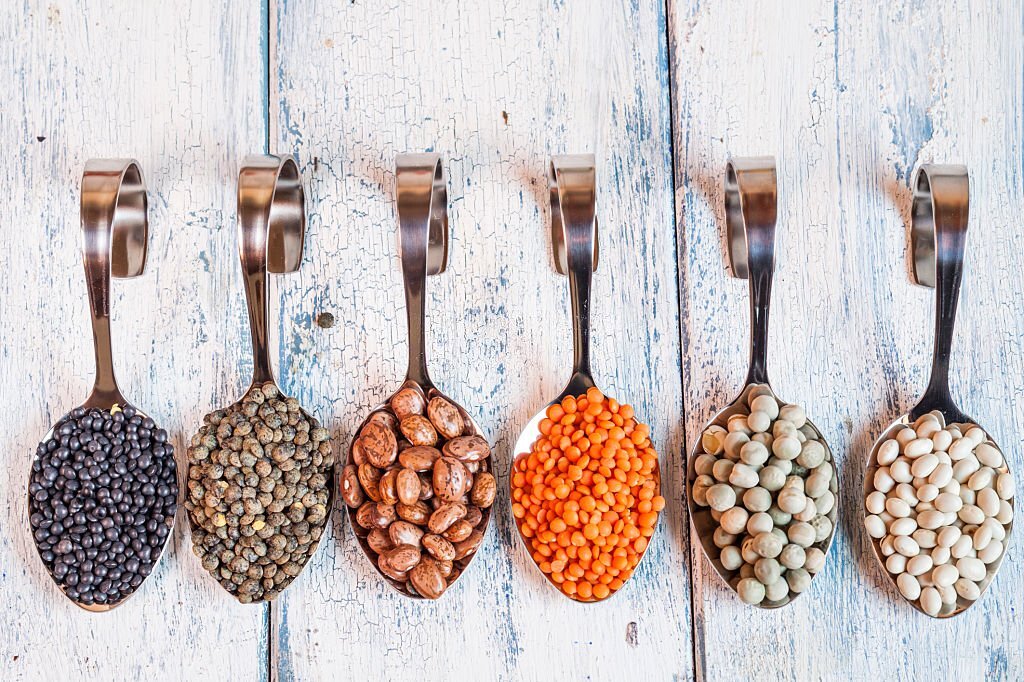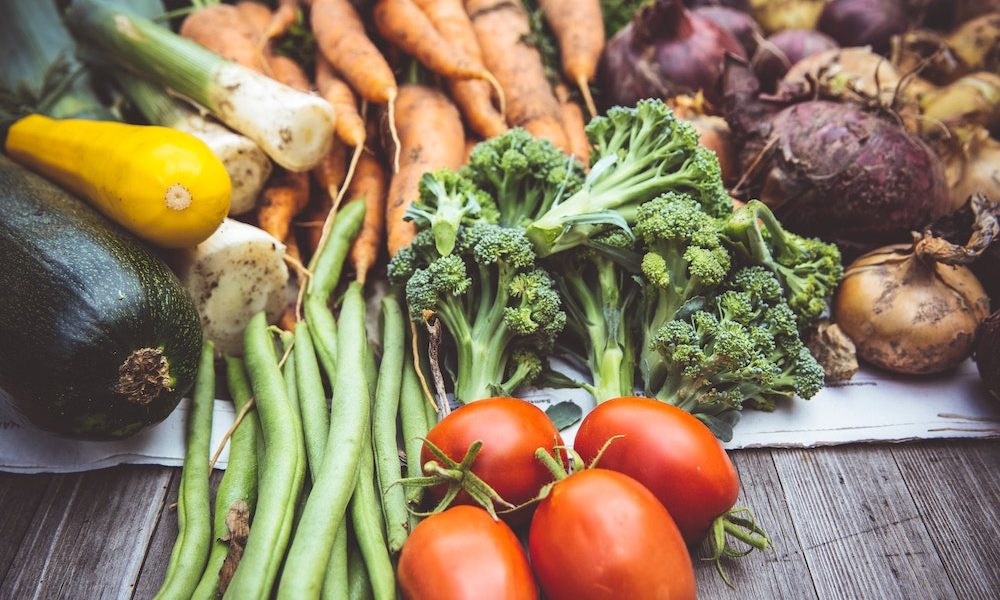Metabolism refers to the pace at which the body burns calories and performs other functions.
When we boost our metabolic rate, it can help us lose extra weight and reduce the risk of obesity and other health-related concerns.
Many factors affect metabolism, including age, hormones, gender, and many others. Experts say nutrition plays a vital role in speeding up our metabolic rate.
Do Vegetables Boost Metabolism?
What you eat defines who you are. If you want to be healthy and fit, you must also load up on nutritious foods.
When you load up on vegetables and fruits that improve your metabolism, you fuel your body to create and utilize energy efficiently. Meanwhile, when you eat inflammatory foods like processed meats, fried foods, and added sugars, they are more likely to remain in your body as stored fat.
The Best Vegetables To Boost Your Metabolism
Here, we listed the seven best vegetable options to add to your diet. We also explained how these foods could affect your metabolic rate and weight-loss journey. We even listed some ways to serve these nutritious foods.
- Artichokes
- Broccoli
- Spinach
- Kale
- Brussel sprouts
- Cauliflower
- Legumes
1. Artichokes


Artichokes are often called a “superfood” because of their high antioxidants content. They have been shown to have many proven and potential health benefits.
Artichokes can boost bile secretion, which improves carbohydrate and fat metabolism, or the conversion of fat and carbs into energy. It also protects you against metabolism disorders, which puts you at risk for obesity, stroke, and diabetes.1
This vegetable is also rich in metabolism-boosting nutrients like calcium, B vitamins, fiber, iron, and more.
One of the easiest ways to eat artichokes is to steam and dip their petals in different dipping sauces. You can also serve them stuffed with your favorite vegetables and breadcrumbs. You can also grill or add them to salads or soups.
Read more: 5 Vitamins & Minerals That Will Boost Your Metabolism
2. Broccoli


Broccoli may benefit your body’s metabolism because it has glucoraphanin.
Glucoraphanin helps to “retune” metabolism, meaning it can affect your metabolic rate at a cellular level and reduces your risk for chronic diseases that are usually hereditary like cancer.2
Glucoraphanin also lowers blood fat levels and reduces the risk of many age-related diseases like cardiovascular diseases.
Broccoli’s high fiber content helps properly digest fat and eliminate excess fat and calories.
Broccoli can be cooked in many ways, such as steamed, sautéed, roasted, or boiled. It can also be served raw, added to salads, or with dips.
3. Spinach


Green leafy vegetables like spinach can boost your metabolism because of their iron content.
According to the USDA (US Department of Agriculture), 100g serving of spinach contains 2.71mg of iron.
Iron is necessary because it contributes to the healthy functioning of the thyroid gland, which is responsible for regulating your metabolism.
If you don’t have sufficient iron, you can suffer from iron deficiency anemia which leaves you weak, tired, and short of breath.
You can add spinach to your egg toast for a healthy breakfast. You can also make a green smoothie by adding baby spinach to soy milk and banana in a blender. Spinach can be added to stir-frys, stews, or soups.
4. Kale


Kale is one of the healthiest and most nutrient-dense plant foods.
Like spinach, kale also contains high iron that helps boost your metabolism.
This green vegetable can speed up your metabolism because of its powerful antioxidants like flavonoids quercetin and kaempferol. Flavonoids neutralize free radicals that can damage cells and convert them into soft energy.
Flavonoids are especially beneficial to individuals with diabetes or obesity. It can improve glucose metabolism and break down carbohydrates to provide cells with energy.
Kale can also reduce body weight, fat, and waist circumference and gives you a boost of energy for your activities.
Although it is commonly eaten raw in salads and smoothies, it may also be sautéed, steamed, boiled, or baked.
5. Brussel Sprouts


Brussel sprouts are rich in metabolism-boosting nutrients like iron, magnesium, potassium, B vitamins, and fiber.
They are also rich in kaempferol, flavonoid antioxidants that work on converting free radicals into energy for the cells. It also increases energy expenditure, the total energy cost needed to maintain body functions and physical activities.
Brussels sprouts are good plant sources of ALA omega-3 fatty acids.
Omega-3 fatty acids are linked to many health benefits. A study showed that it increases resting and exercise metabolic rates of elder women.3
You can blanch Brussel sprouts and toss them with olive oil. Brussel sprouts can also be enjoyed roasted, sauteed, or grilled. You can shred it like cabbage and add them to salads. You can also stir-fry it with bacon or pancetta.
Read More: Best Fruits To Boost Your Metabolism
6. Cauliflower


Like broccoli, kale, and cabbage, cauliflower belongs to the same cruciferous family.
Cauliflower has a high amount of fiber and water that aid in digestion and boosts your metabolism. It also has an impressive amount of choline at 44.3mg per 100g of cauliflower.
Choline has an important role in weight loss because it helps metabolize fats and breaks them down as an energy source. It protects you against fatty liver and excess fat in the blood.4
Cauliflower also contains sulforaphane, an antioxidant that helps reduce blood pressure and protects you against cancer. Research shows that sulforaphane leads to more energy consumption and fat burning. Aside from boosting your metabolism, it also protects you against obesity. Sulforaphane can also be found in kale and broccoli.5
You can boil or steam cauliflower to retain most of its nutrients. You can roast it until crispy or turn it into a low-carb cauli rice.
7. Legumes


Legumes like beans, lentils, and peas are popular vegetarian meat substitutes because of their protein content. The USDA classifies them as vegetables because of their high dietary fiber and minerals like folate and potassium.
Because it contains high protein, legumes are great metabolism boosters. Protein has a high thermic effect, meaning it gives you a boost of metabolism after eating. It also makes your burn more calories even while at rest.
Legumes are also rich in fiber, making your metabolism busy at work digesting them. It also makes you feel full longer.
Beans also contain resistant starch, which promotes fat metabolism.
Studies also show that legumes protect you against metabolic disorders, which puts you at risk for chronic diseases like diabetes.6
You can use pureed beans to make dips and spreads or make bean soups, stews, and casseroles. Cooked beans can be used as meat alternatives for meatballs or hamburgers.
Vegetables To Boost Your Metabolism – In Short
There you go. I hope this list of metabolism-boosting vegetables will be helpful to you!
Vegetables are abundant in fiber and nutrients, improving metabolism and burning belly fat. Harvard’s School of Public Health reminds us how important it is to include vegetables in our weight-loss diet.
They wrote, “Eating non-starchy vegetables and fruits like apples, pears, and green leafy vegetables may promote weight loss. Their low glycemic loads prevent blood sugar spikes that can increase hunger.”
References:


